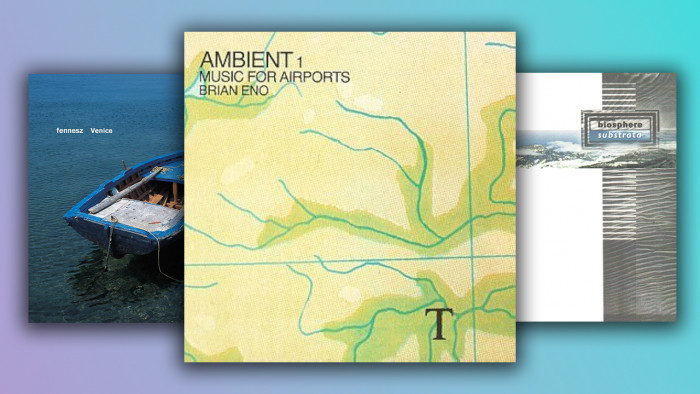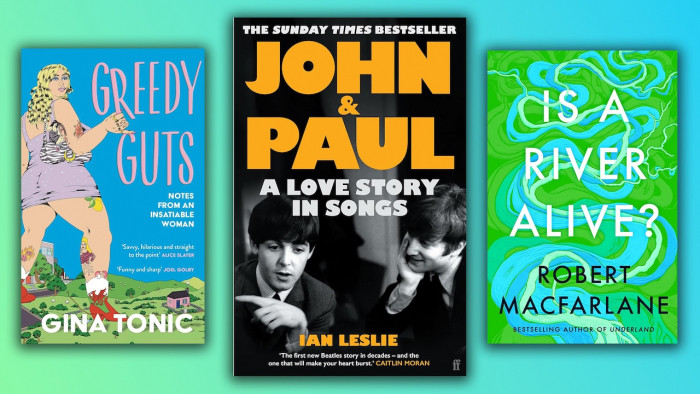12 lessons from Leonard Cohen lyrics on the joy and unbearable pain of being a man
To celebrate the great musician's life and career, we take a look back at some of his wisest words


With a career that spanned 50 years, Leonard Cohen – the “godfather of gloom” – crafted some of the greatest lyrics of all time.
As much a poet as a musician, his ability to talk his way under the skin of us men and pull up apart our emotions was unparalleled. If you’ve felt it, chances are Leonard Cohen has written a line about it.
To celebrate his life and career, we take a look back at some of greatest lyrics – and the lessons they can teach us about both the joy and unbearable pain of being a man.
“And you want to travel with her, and you want to travel blind/And you know that she will trust you/For you've touched her perfect body with your mind” - Suzanne (1967)
The Background: The first song of his debut album, it’s taken from a poem he wrote before his musical career began and based on his platonic relationship with friend Suzanne Verdal.
Life Lesson: Young, unrequited love is something that all men understand – and an important part of life. Most of us have dreamed of being close to someone as Cohen did Suzanne.
“I met a man who lost his mind/In some lost place I had to find/Follow me the wise man said/But he walked behind” – Teachers (1967)
The Background: Another track for Cohen’s first album, it seems to tell of Cohen’s move from poet into musician – an inner calling he can’t ignore.
Life Lesson: If you want it, life just gets better and better. He didn’t record his first album until he was 33, made his most popular record aged 58 (I’m Your Man), and continued to be a musical inspiration until his final album, released just three weeks ago.
“Your letters they all say that you're beside me now/Then why do I feel alone?/I'm standing on a ledge and your fine spider web/is fastening my ankle to a stone” - So Long Marianne (1967)
The Background: Cohen moved to the Greek island of Mythos in the early Sixties, living as a near-reclusive with his muse and love Marianne Jensen. He wrote this song for her after moving back to the US in 1967.
Life Lesson: You never truly get over your first love. Sounds bleak, guys, but the way Cohen puts it proves it’s actually a beautiful thing.

“Like a beast with his horn/I have torn everyone who reached out for me/But I swear by this song/And by all that I have done wrong/I will make it all up to thee” – Bird On The Wire (1968)
The Background: Suffering from one of this many bouts of depression, Cohen wrote a poem comparing himself to a lonely bird he saw on a telephone wire in Mythos. It would late transform into this classic song.
Life Lesson: Every man makes mistakes and hurts the ones closest to him. Working to make things right is what counts.
“And what can I tell you my brother, my killer/What can I possibly say?/I guess that I miss you, I guess I forgive you/I'm glad you stood in my way – Famous Blue Raincoat (1971)
The Background: Inspired by the real-life theft of his actual raincoat, Cohen crafted this mysterious song about a love triangle between himself, his lover Jane, and his own brother.
Life Lesson: Forgiveness – for even the greatest, most painful crimes – is a virtue. (Except coat theft, of course, which is just ruddy annoying.)

“As the mist leaves no scar/On the dark green hill/So my body leaves no scar/On you and never will” – True Love Leaves No Traces (1977)
The Background: After making musical history with a killer set at the Isle of Wight festival in 1970, then volunteering for Israel in the Yom Kippur war, Cohen recorded the disastrous Death of a Ladies Man album with Phil Spector. On it though, it was this – one of his most poetic love songs.
Life Lesson: As these lyrics – a perfectly composed sentiment about the idealistic notions of love – proves that even in our most trying moments we’re all capable of something quite brilliant.
“There's a blaze of light/In every word/It doesn't matter which you heard/The holy or the broken Hallelujah” - Hallelujah (1984)
The Background: Following a period of commercial decline, Cohen recorded Various Positions – an album that Columbia initially refused to release. This track would go one to be Cohen’s most famous, thanks to Jeff Buckley. Cohen wrote 80 drafts getting it right. It was worth the effort.
Life Lesson: A modern-day hymn for those with and without religion, the message in these lyrics is clear – life itself is divine.

“And if you want a doctor/I'll examine every inch of you/If you want a driver, climb inside/Or if you want to take me for a ride/You know you can/I'm your man” – I’m Your Man (1988)
The Background: At 58-years-old Cohen released his most accessible and modern-sounding album. This title track is a sizzling, almost seedy confession of pure, filthy-minded lust. It would continue to get his female fans (and dare say some of the men too) hot under the collar at his concerts for the next 20 years.
Life Lesson: Don’t sweat it fellas. We really do get sexier as we get older.
“Ring the bells that still can ring/Forget your perfect offering/There is a crack in everything/That's how the light gets in.” – Anthem (1992)
The Background: From his 1992 album, The Future, these lines are considered as one of Cohen’s greatest ever (no mean feat there are literally thousands to choose from). Fans would have to saviour this genius – Cohen disappeared from music for nine years, moving to a California retreat to become a Buddhist monk.
Life Lesson: Even in your darkest hour, there is always hope. It’s one of those incredibly uplifting lines that can often be found without the godfather of gloom’s most pessimistic songs.

“I love to speak with Leonard/He's a sportsman and a shepherd/He's a lazy bastard livin' in a suit/But he does say what I tell him/Even though it isn't welcome/he just doesn't have the freedom to refuse” – Going Home (2012)
The Background: In 2006, Cohen – now in his seventies – had to go back on tour after discovering his manager had embezzled his $5million savings. It began to creative and commercial resurgence, eventually to leading to his Old Ideas album, including this track. In this lyric he speaks to himself, presumably as a higher power or something deep inside.
Life Lesson: A man is bound by his desires – emotional, creative, or spiritual. Like Cohen says, he doesn’t have the freedom to refuse. In short, it’s a man’s responsibility to pursue what he needs from life.
“There's torture and there's killing/And there's all my bad reviews/The war, the children missing/Lord, it's almost like the blues” – Almost Like The Blues (2014)
The Background: From his last but one album, Popular Problems, it’s an indictment of the horrors happening around the world – and our own self-indulgence. Cohen’s admission that he’s troubled by his own reviews as much as war is as brutally honest as anything ever recorded.
Life Lesson: It’s a selfish old business being a man sometimes. That he sees that himself is the real crux though – another glimmer of hope hidden beneath the darkness.
“There is no God in Heaven/And there is no Hell below/So says the great professor/Of all there is to know/But I've had the invitation/That a sinner can't refuse/And it's almost like salvation/It's almost like the blues” – Almost Like The Blues (2014)
The Background: In yet another line from the same incredible song, Cohen appears to be pondering ‘the end’. Eighty years old at the time, you can hardly blamed him.
Life Lesson: After 50 years of inspiring music and lyrics, a man’s allowed to take a moment reflecting and thinking about his own mortality. He’s earned it.
Latest
Related Reviews and Shortlists


The best whisky taste tested








